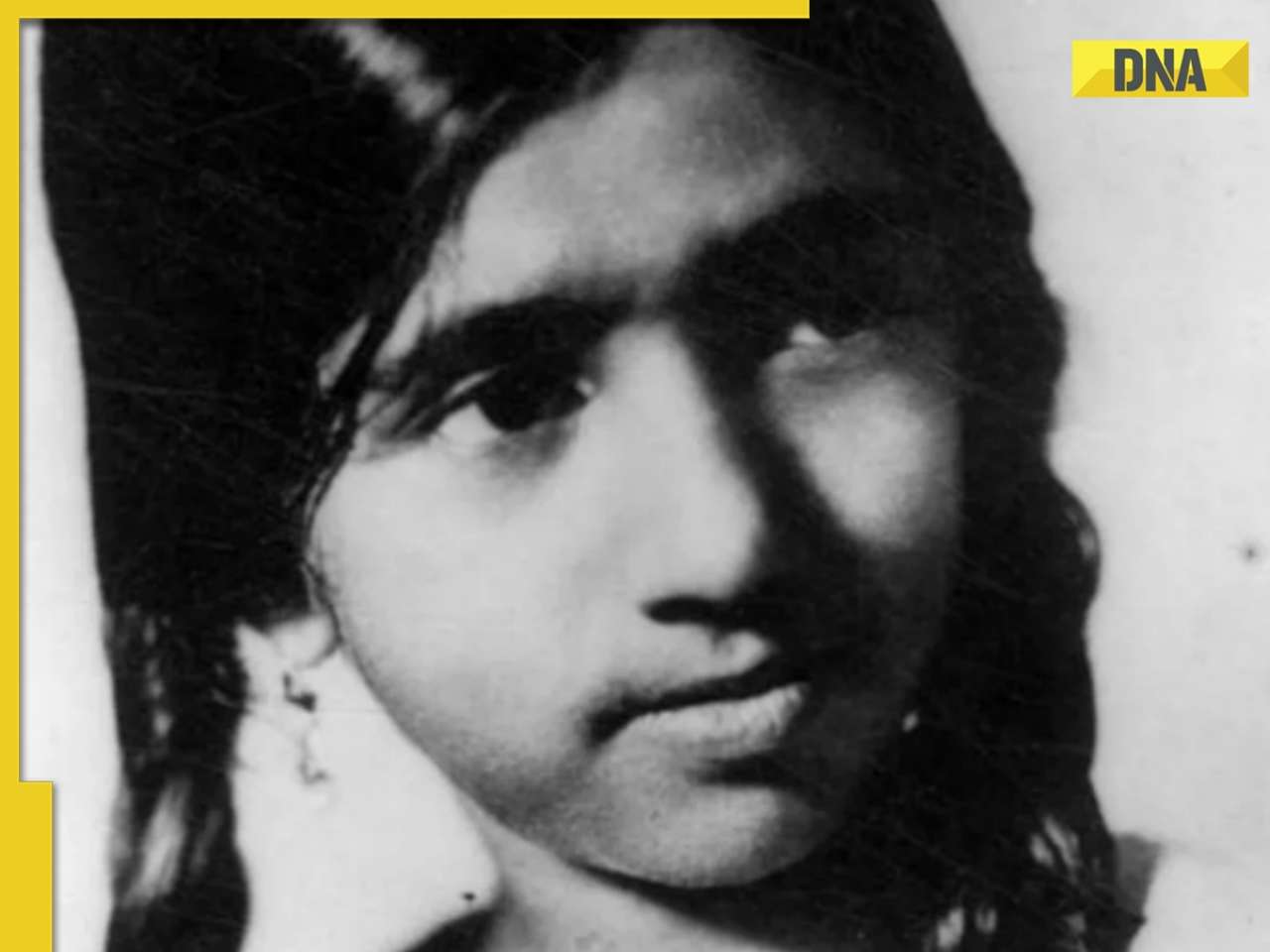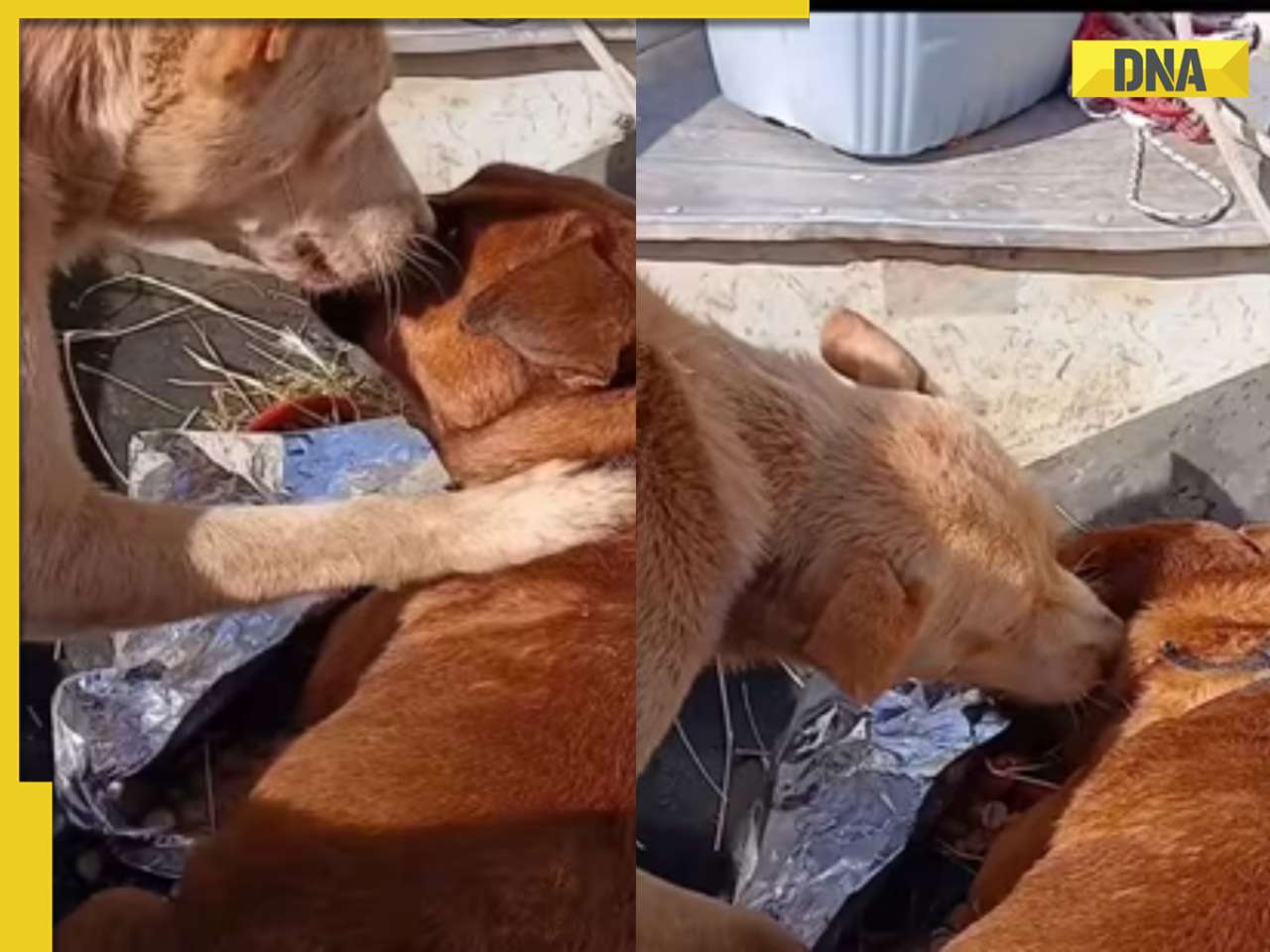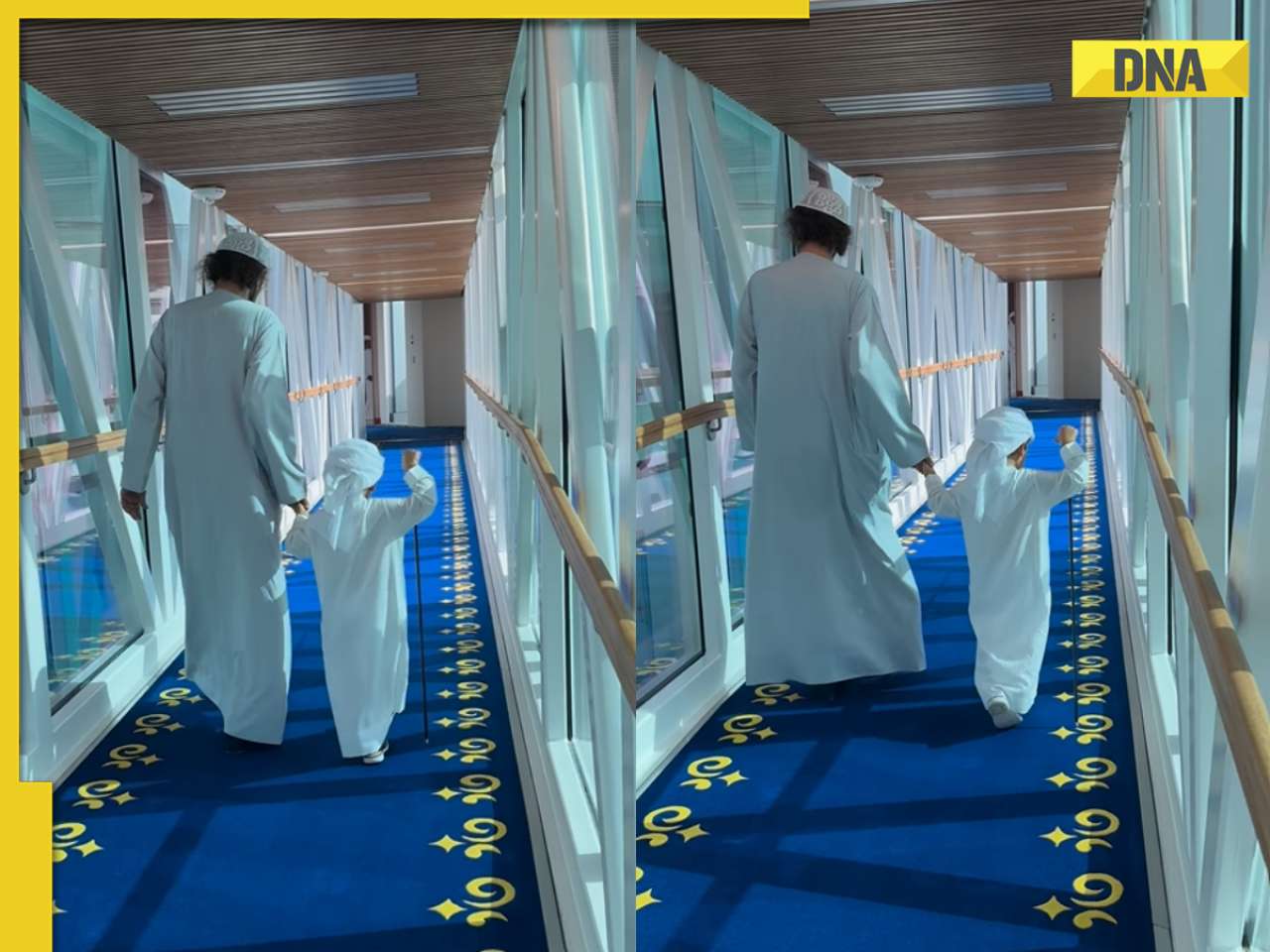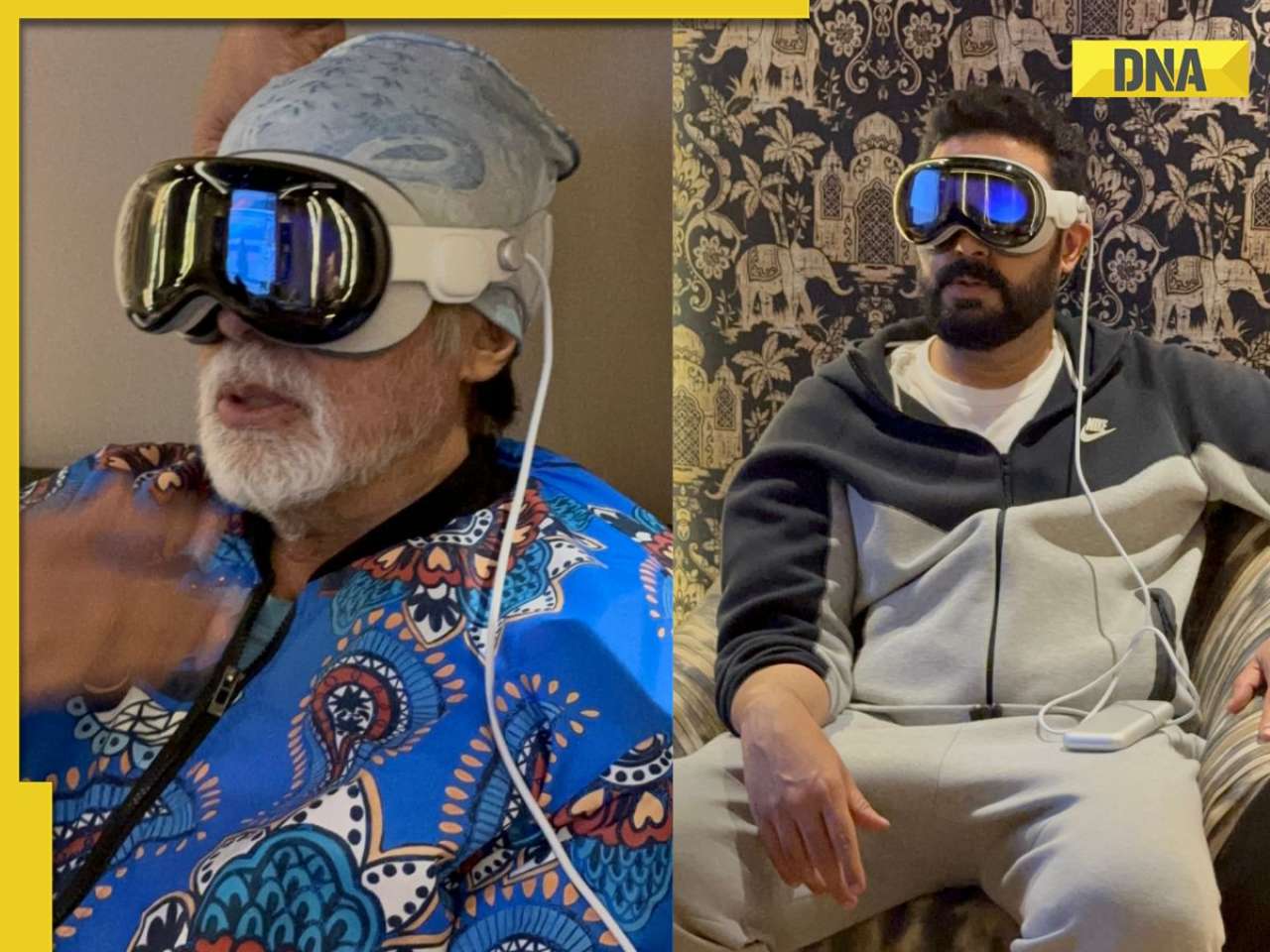This year's Ig Nobel Prize for Transportation Research went to an experiment in which rhinoceroses were hung upside down to examine the effect.
The Ig Nobel Prize has been granted yearly from 1991 to ten unique or unlikely scientific achievements, with the declared goal of "honouring breakthroughs that first make people laugh, and then make them think."
The award's name is a joke on the Nobel Prize, which it mocks, as well as the adjective ignoble (not noble).
The Ig Nobel Prizes are delivered by Nobel prize winners at a ceremony at Harvard University's Sanders Theater, followed by public lectures by the winners at MIT. It is hosted by the scientific comedy journal Annals of Improbable Research (AIR). Because the ceremony could not be held at its normal location of Harvard University in the US due to COVID-19 limitations, the event was held entirely virtually. This year's Ig Nobel Prize for Transportation Research went to an experiment in which rhinoceroses were hung upside down to examine what effect it had on the animals.
In Namibia, wildlife veterinarian Robin Radcliffe of Cornell University and colleagues conducted the experiment to see if the animals' health would be jeopardised by being hung by their legs beneath a helicopter.
Namibia has become the first country in the world to use helicopters to transport rhinos upside down. It's a technique that's becoming more popular in African conservation efforts to move rhinos between divided habitat areas.
No one had performed any basic research to see if the heavily sedated animals' hearts and lungs could deal with upside-down flying. In partnership with the Namibian Ministry of Environment, Forestry, and Tourism, Robin and his team used a crane to hold 12 tranquilised black rhinoceroses by their feet and examined their physical responses.
The rhinos, it turns out, functioned impressively. According to Radcliffe, when a rhino is hanging upside down, the upper half of its lung is not properly perfused, thus it appears to be standing upside down rather than chest down or on its side. "We've also seen that rhinos that are on their side too long, or on their sternum, especially - they get muscle damage, they get myopathy, because they're so heavy. And there's no pressure on their legs, other than the sense of the strap around their ankle,” said this year’s winner.
The prizes were presented on the night by real Nobel laureates, including Frances Arnold (chemistry, 2018), Marty Chalfie, and Eric Maskin (economics, 2007), as has been tradition with the Ig Nobels. The winners received a trophy that they had to design themselves from a PDF printout, as well as a money prize in the form of a replica $10 trillion Zimbabwe banknote, which Robin plans to use for grants. Team-member and wildlife doctor Pete Morkel remarked, "This has really changed rhino translocation, and even more so elephant translocation. Picking these big animals up by their feet - it's now accepted. The next thing we've got to do is some research on other species like buffalo, hippo, and maybe even giraffe."
In recent years, the winners featured Alligator on gas snaps in 2020, research on testicles warmth in 2019, and roller coaster therapy in 2018. Teams studying the germs in chewing gum clinging to sidewalks and how to manage cockroaches on submarines were among the other finalists. The imitation Nobels aren't quite as famous as the "actual" Nobels.
The winners of Ig Nobel Prize for 2021 include:
- Susanne Schötz (Biology)
- Leila Satari (Ecology)
- Jörg Wicker and colleagues (Chemistry)
- Pavlo Blavatskyy (Economics)
- Olcay Cem Bulut and colleagues (Medicine)
- Ethan Beseris and colleagues (Peace)
- Alessandro Corbetta and colleagues (Physics)
- Hisashi Murakami and colleagues (Kinetics)
- John Mulrennan Jr and colleagues (Entomology)
- Robin Radcliffe and colleagues (Transportation)
![submenu-img]() This singer helped BCCI when it had no money to award 1983 World Cup-winning Indian cricket team, raised 20 lakh by...
This singer helped BCCI when it had no money to award 1983 World Cup-winning Indian cricket team, raised 20 lakh by...![submenu-img]() Virat Kohli’s new haircut ahead of RCB vs CSK IPL 2024 showdown sets internet on fire, see here
Virat Kohli’s new haircut ahead of RCB vs CSK IPL 2024 showdown sets internet on fire, see here![submenu-img]() BCCI bans Mumbai Indians skipper Hardik Pandya, slaps INR 30 lakh fine for....
BCCI bans Mumbai Indians skipper Hardik Pandya, slaps INR 30 lakh fine for....![submenu-img]() 'Justice must prevail': Former PM HD Deve Gowda breaks silence in Prajwal Revanna case
'Justice must prevail': Former PM HD Deve Gowda breaks silence in Prajwal Revanna case![submenu-img]() India urges students in Kyrgyzstan to stay indoors amid violent protests in Bishkek
India urges students in Kyrgyzstan to stay indoors amid violent protests in Bishkek![submenu-img]() Meet IIT graduates, three friends who were featured in Forbes 30 Under 30 Asia list, built AI startup, now…
Meet IIT graduates, three friends who were featured in Forbes 30 Under 30 Asia list, built AI startup, now…![submenu-img]() Meet woman who cracked UPSC in fourth attempt to become IAS officer, secured AIR...
Meet woman who cracked UPSC in fourth attempt to become IAS officer, secured AIR...![submenu-img]() Meet IIT JEE 2024 all-India girls topper who scored 100 percentile; her rank is…
Meet IIT JEE 2024 all-India girls topper who scored 100 percentile; her rank is…![submenu-img]() Meet PhD wife of IIT graduate hired at Rs 100 crore salary package, was fired within a year, he is now…
Meet PhD wife of IIT graduate hired at Rs 100 crore salary package, was fired within a year, he is now…![submenu-img]() Meet woman not from IIT, IIM or NIT, cracked UPSC exam in first attempt with AIR...
Meet woman not from IIT, IIM or NIT, cracked UPSC exam in first attempt with AIR...![submenu-img]() DNA Verified: Is CAA an anti-Muslim law? Centre terms news report as 'misleading'
DNA Verified: Is CAA an anti-Muslim law? Centre terms news report as 'misleading'![submenu-img]() DNA Verified: Lok Sabha Elections 2024 to be held on April 19? Know truth behind viral message
DNA Verified: Lok Sabha Elections 2024 to be held on April 19? Know truth behind viral message![submenu-img]() DNA Verified: Modi govt giving students free laptops under 'One Student One Laptop' scheme? Know truth here
DNA Verified: Modi govt giving students free laptops under 'One Student One Laptop' scheme? Know truth here![submenu-img]() DNA Verified: Shah Rukh Khan denies reports of his role in release of India's naval officers from Qatar
DNA Verified: Shah Rukh Khan denies reports of his role in release of India's naval officers from Qatar![submenu-img]() DNA Verified: Is govt providing Rs 1.6 lakh benefit to girls under PM Ladli Laxmi Yojana? Know truth
DNA Verified: Is govt providing Rs 1.6 lakh benefit to girls under PM Ladli Laxmi Yojana? Know truth![submenu-img]() Kiara Advani stuns in Prabal Gurung thigh-high slit gown for her Cannes debut, poses by the French Riviera
Kiara Advani stuns in Prabal Gurung thigh-high slit gown for her Cannes debut, poses by the French Riviera![submenu-img]() Heeramandi star Taha Shah Badussha makes dashing debut at Cannes Film Festival, fans call him ‘international crush’
Heeramandi star Taha Shah Badussha makes dashing debut at Cannes Film Festival, fans call him ‘international crush’![submenu-img]() Streaming This Week: Madgaon Express, Zara Hatke Zara Bachke, Bridgerton season 3, latest OTT releases to binge-watch
Streaming This Week: Madgaon Express, Zara Hatke Zara Bachke, Bridgerton season 3, latest OTT releases to binge-watch![submenu-img]() Sunanda Sharma exudes royalty as she debuts at Cannes Film Festival in anarkali, calls it ‘Punjabi community's victory’
Sunanda Sharma exudes royalty as she debuts at Cannes Film Festival in anarkali, calls it ‘Punjabi community's victory’![submenu-img]() Aishwarya Rai walks Cannes red carpet in bizarre gown made of confetti, fans say 'is this the Met Gala'
Aishwarya Rai walks Cannes red carpet in bizarre gown made of confetti, fans say 'is this the Met Gala'![submenu-img]() Haryana Political Crisis: Will 3 independent MLAs support withdrawal impact the present Nayab Saini led-BJP government?
Haryana Political Crisis: Will 3 independent MLAs support withdrawal impact the present Nayab Saini led-BJP government?![submenu-img]() DNA Explainer: Why Harvey Weinstein's rape conviction was overturned, will beleaguered Hollywood mogul get out of jail?
DNA Explainer: Why Harvey Weinstein's rape conviction was overturned, will beleaguered Hollywood mogul get out of jail?![submenu-img]() What is inheritance tax?
What is inheritance tax?![submenu-img]() DNA Explainer: What is cloud seeding which is blamed for wreaking havoc in Dubai?
DNA Explainer: What is cloud seeding which is blamed for wreaking havoc in Dubai?![submenu-img]() DNA Explainer: What is Israel's Arrow-3 defence system used to intercept Iran's missile attack?
DNA Explainer: What is Israel's Arrow-3 defence system used to intercept Iran's missile attack?![submenu-img]() This singer helped BCCI when it had no money to award 1983 World Cup-winning Indian cricket team, raised 20 lakh by...
This singer helped BCCI when it had no money to award 1983 World Cup-winning Indian cricket team, raised 20 lakh by...![submenu-img]() This film had 3 superstars, was unofficial remake of Hollywood classic, was box office flop, later became hit on...
This film had 3 superstars, was unofficial remake of Hollywood classic, was box office flop, later became hit on...![submenu-img]() Meet Nancy Tyagi, Indian influencer who wore self-stitched gown weighing over 20 kg to Cannes red carpet
Meet Nancy Tyagi, Indian influencer who wore self-stitched gown weighing over 20 kg to Cannes red carpet![submenu-img]() Telugu actor Chandrakanth found dead days after rumoured girlfriend Pavithra Jayaram's death in car accident
Telugu actor Chandrakanth found dead days after rumoured girlfriend Pavithra Jayaram's death in car accident![submenu-img]() Meet superstar who faced casting couch at young age, worked in B-grade films, was once highest-paid actress, now..
Meet superstar who faced casting couch at young age, worked in B-grade films, was once highest-paid actress, now..![submenu-img]() Viral video: Flood-rescued dog comforts stranded pooch with heartfelt hug, internet hearts it
Viral video: Flood-rescued dog comforts stranded pooch with heartfelt hug, internet hearts it![submenu-img]() Dubai ruler captured walking hand-in-hand with grandson in viral video, internet can't help but go aww
Dubai ruler captured walking hand-in-hand with grandson in viral video, internet can't help but go aww![submenu-img]() IPL 2024: Virat Kohli drops massive hint on MS Dhoni’s retirement plan ahead of RCB vs CSK clash
IPL 2024: Virat Kohli drops massive hint on MS Dhoni’s retirement plan ahead of RCB vs CSK clash![submenu-img]() Do you know which God Parsis worship? Find out here
Do you know which God Parsis worship? Find out here![submenu-img]() This white marble structure in Agra, competing with Taj Mahal, took 104 years to complete
This white marble structure in Agra, competing with Taj Mahal, took 104 years to complete






































)
















)
)
)
)
)
)